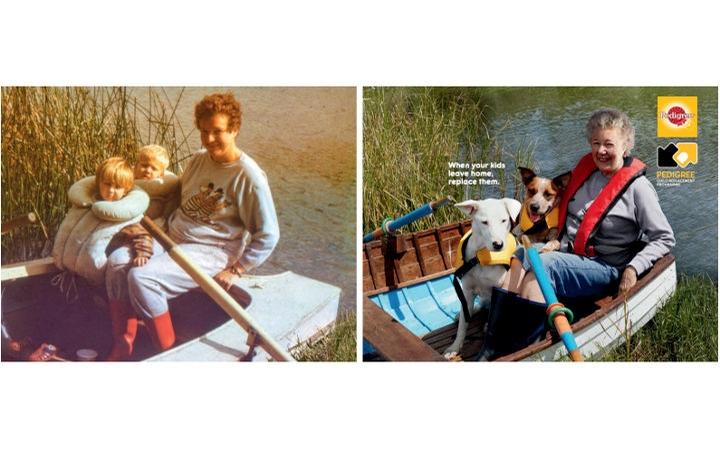
Rescue Dogs Put Their Paws Up to Become Part of a Modern Family
29 March 2017, 11:25AM
Impact PR
House unusually quiet? The kids might have flown the coop, but empty nesters are embracing the doggone delight of a new family dynamic, with a new initiative from the Pedigree Adoption Drive Charitable Trust.
The doggone modern family is all about rehoming the thousands of lovable pooches from around New Zealand rescued annually from abuse and neglect. And with empty nesters missing the kids who’ve grown up and out of the family home, rescue dogs are putting their paws up to be matched with a likely couple.
The Pedigree Adoption Drive Charitable Trust campaign has created a website which helps prospective owners match dogs with the physical characteristics of children who have moved out of the family home. From a loud, boisterous boy to a mellow, affectionate girl – there’s a pooch in need to blend with its newfound family.
Cuddles, bonding, love, affection and attention are all the best bits of being a parent – and once these warm fuzzies are no longer readily available, a furry friend can provide the tonic empty nesters need to re-establish their place in the world.
The benefits of owning a dog are well documented, with a recent study* outlining the therapeutic nature of canines and their ability to bolster mood and motivation in humans. As well as this, having pets in the home has been linked to a reduction in minor health problems in adults, lower stress levels and a reduced risk of cardiovascular disease. So it goes without saying that adults with pets make fewer visits to the doctor than those without pets!
Cormac van den Hoofdakker, spokesperson for the Pedigree Adoption Drive Charitable Trust, says the campaign will target the parents of adult children or those suffering from what is known as Empty Nest Syndrome.
.jpg)
“At this time of year, thousands of Kiwi parents will be feeling the effects of seeing their children leave home for the first time as they head to university or to start work, says van den Hoofdakker.
“There are also just as many rescue dogs in need of rehoming throughout New Zealand – we want to do all we can to bring them together,” he says.
Auckland psychologist Sara Chatwin says the impact of having an empty nest on our mental wellbeing should not be underestimated.
“Having spent much of their life looking after children and caring for them, parents can have a difficult time coming to terms with a house that isn’t so busy and frenetic.
“Suddenly their role as caregiver is significantly diminished and people can struggle with loneliness and depressive symptoms.
“They will often think long and hard about ‘what next’ to keep them physically and mentally active and getting a canine companion can help answer that question,” she says.
Chatwin says a new pet dog can allow the empty nester to shift the focus off themselves, their issues and feelings of emptiness.
She says choosing a dog that has attributes of a child who has moved out can also have significant benefits.
“I suspect that if a dog embodies characteristics of a family member; long hair, a type of physique, it could really feel like a great fit in the family.
“Often people are looking for a replacement and are attracted to things they’re used to (in regards to looks) or that remind them of certain people,” says Chatwin.
The campaign, which runs for a month, also needs foster parents to help socialise the dogs saved from abusive environments to prepare them for adoption, says van den Hoofdakker.
“For those that can’t commit to taking a dog permanently, helping to socialise the dog through fostering it in a caring home is a key part in preparing it for long term adoption.”
